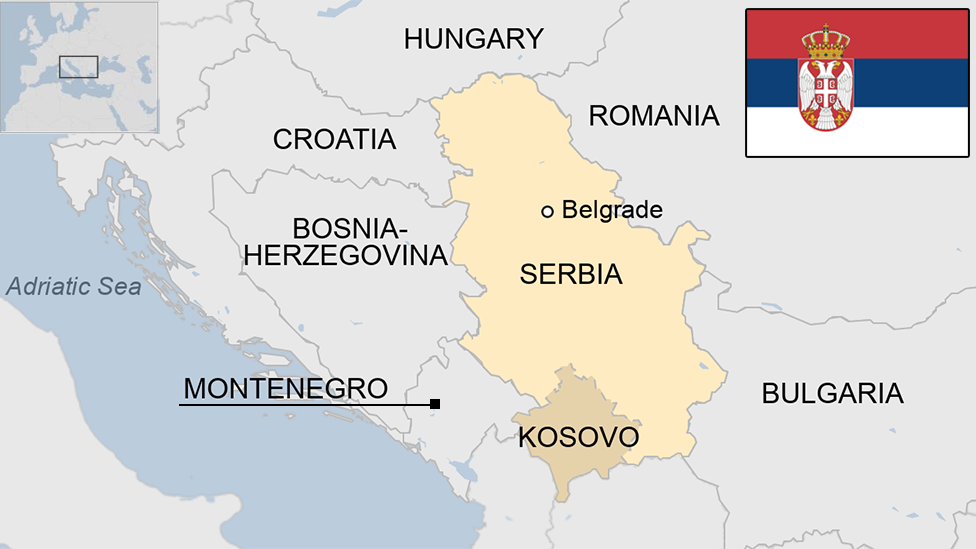Kosovo and Serbia sign 'landmark' agreements
- Published
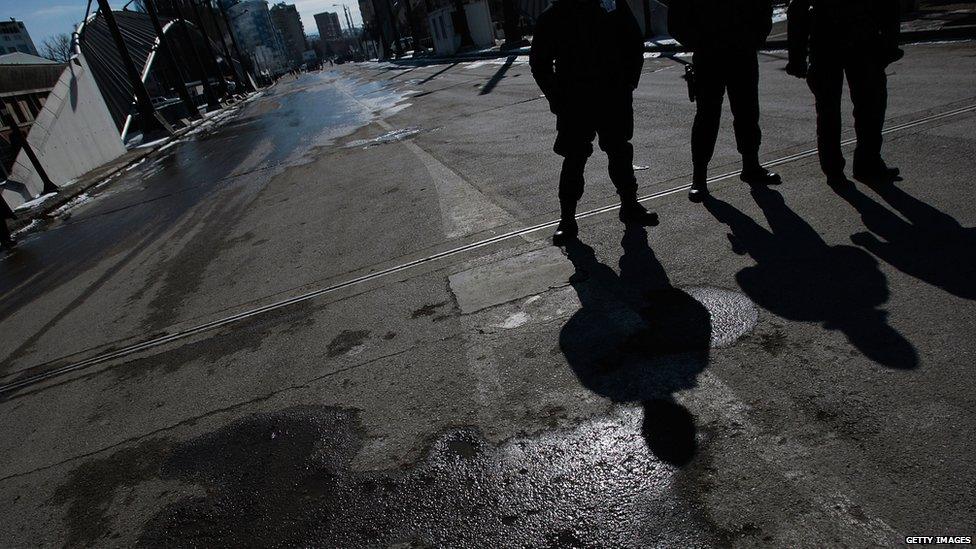
Among the agreements was one on Mitrovica Bridge in northern Kosovo, which divides Serb and Kosovan communities
Kosovo and Serbia have signed a series of agreements in key areas, in a major step towards normalising ties.
Serbs in northern Kosovo will enjoy greater rights through one of the deals, while Kosovo gains its own international dialling code in another.
The EU's foreign policy chief, Federica Mogherini, who mediated, called the agreements "landmark achievements", external.
Kosovo split from Serbia in 2008, a decade on since a conflict between Serb forces and Kosovan Albanian rebels.
A Nato bombing campaign against Belgrade effectively forced Serbia to cede the state, but it has not officially recognised Kosovo.
Both sides aspire to join the EU, which for Serbia depends on implementing a 2013 EU-brokered agreement on normalising ties with its southern neighbour.
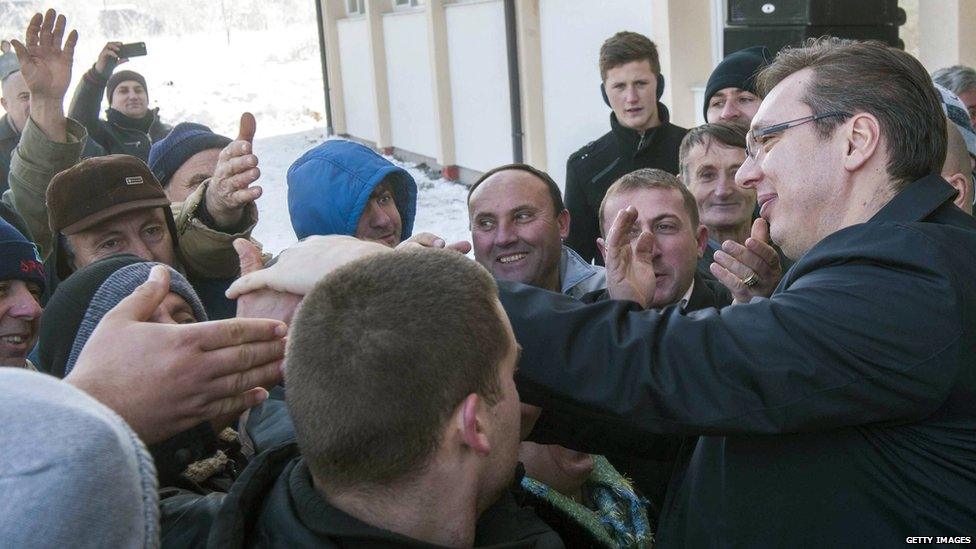
The Serb prime minister (R) made a highly symbolic visit to Serb-majority areas of Kosovo in January

New momentum for Serbia and Kosovo - by Guy Delauney, BBC News, Belgrade
Under the April 2013 Brussels Agreement, Serbia did not recognise Kosovo's independence but agreed to co-operate in ways that would allow it to operate more like a sovereign state.
Progress since then has been patchy. Elections played a part. For several months last year Kosovo did not have a government, and the Albanian nationalist opposition opposed any compromises with Serbia.
But finally talks have regained their momentum.
Both sides say they have got what they wanted from the latest deal.
Kosovo's foreign minister claimed it was a de facto recognition of independence.
Serbia's prime minister said it ensured representation for ethnic-Serbs in Kosovo. It should also mean Serbia can now move forward with its negotiations to join the EU.

"This is a big achievement for the whole of Serbia and it means there are no longer any obstacles, nothing stands on Serbia's way towards Europe," said Serb Prime Minister Aleksandar Vucic.
Kosovo Foreign Minister Hashim Thaci was quoted as saying, external that Serbia had "in a way recognised Kosovo as an independent state".
Kosovo has a majority Albanian population, but under the agreement 10 areas with large Serb populations will be able to manage issues such as the local economy and education.
Mr Vucic said the Community of Serb Municipalities would have an assembly, president and a flag, external.

The deal will also put an end to the inconvenience for Kosovo's mobile phone users of using Monaco or Slovenia international codes. Serbian-majority areas in the north will still be able to use Serbian calling codes.
The two sides also agreed on how to share the symbolic Mitrovica Bridge that separates Albanian and Serb communities in the north.
- Published23 October 2014
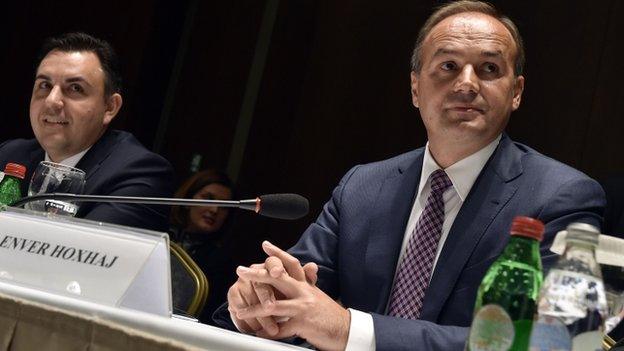
- Published19 April 2013
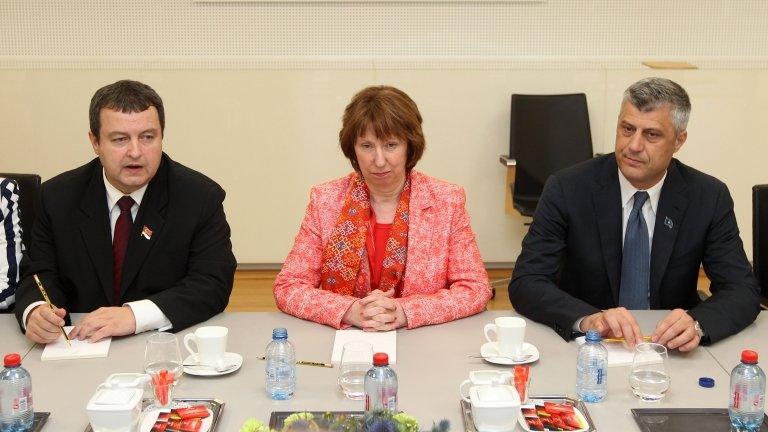
- Published28 June 2023
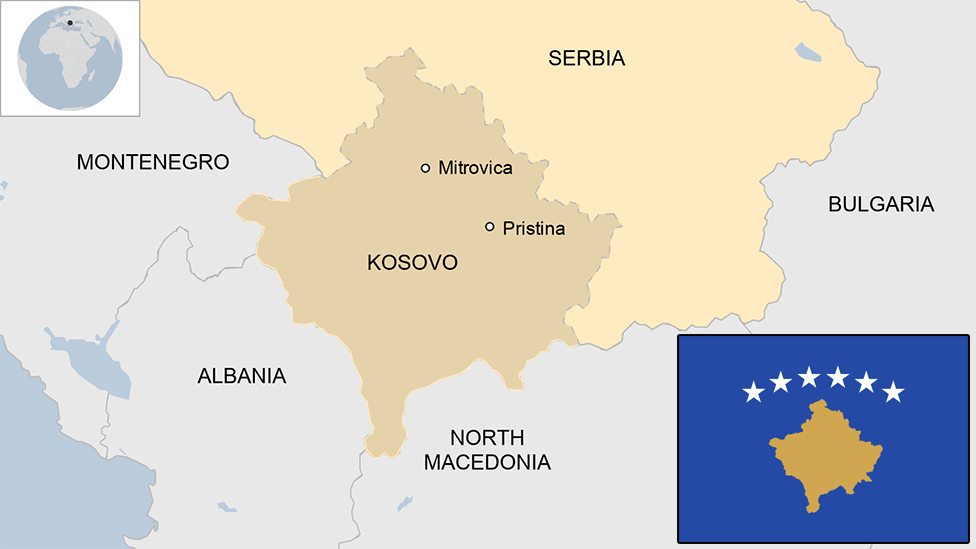
- Published28 January
